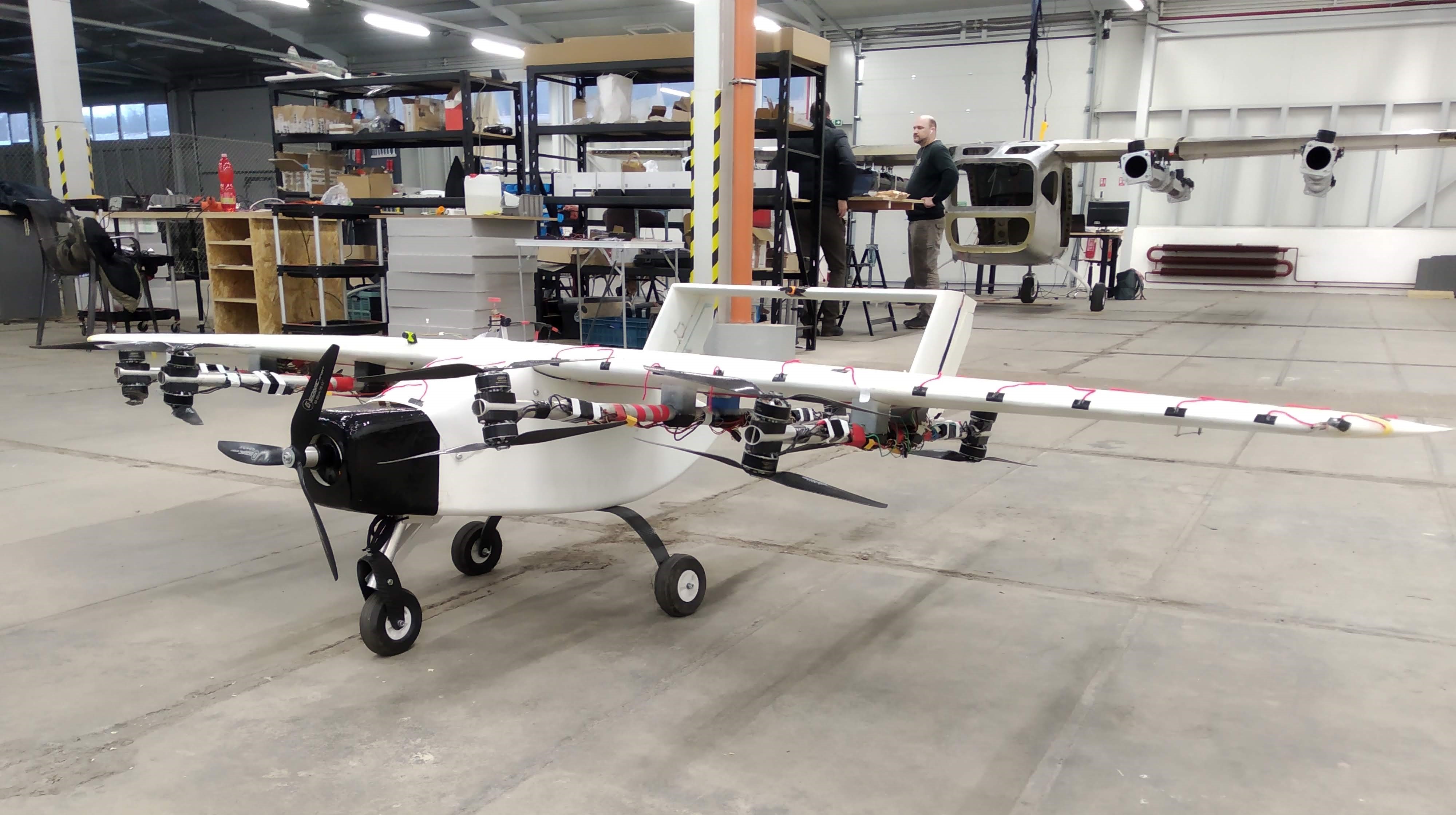Flight Controls Development for Hybrid eVTOL Aircraft
2020 - 2021
During my tenure at Zuri from January 2020 to July 2021, I played a key role in developing flight control systems for their innovative electric Vertical Takeoff and Landing (eVTOL) aircraft. This experience combined my passion for aerospace engineering with hands-on development of next-generation aviation technology.
Technical Role and Responsibilities
My role as Flight Controls Developer and Flight Test Engineer encompassed three primary areas of focus, each crucial to the advancement of Zuri's eVTOL program. In flight simulation development, I worked extensively with MATLAB and Simulink to create comprehensive models of aircraft dynamics and control systems. These simulations served as the foundation for our control algorithm development, allowing us to test and refine our approach before real-world implementation.
The second major component of my work involved subscale model testing. This proved invaluable for validating our control systems in real-world conditions while minimizing risk and cost. Working with a small team of engineers, we conducted systematic flight tests that helped bridge the gap between simulation and full-scale implementation. The insights gained from these tests were instrumental in refining our control algorithms and ensuring system reliability.

Ground station development formed the third pillar of my responsibilities. I designed and implemented comprehensive telemetry software that enabled real-time flight data analysis. This infrastructure was crucial for both testing operations and post-flight evaluation, allowing us to gather and process critical performance data efficiently.
Technical Achievements
One of the most significant projects I contributed to was the preparation of flight computers and testing systems for Zuri's full-scale technological demonstrator. This complex undertaking required careful integration of flight control systems with our ground infrastructure. We developed robust monitoring systems that provided real-time insight into aircraft performance during test flights, while also establishing reliable data collection pipelines for detailed post-flight analysis.
Our work with subscale models proved particularly valuable in validating control algorithms before full-scale implementation. Through iterative testing, we were able to identify and address potential issues early in the development cycle. This approach allowed us to optimize control parameters and establish safe operating envelopes for various flight conditions, significantly de-risking the development process.
Leadership and Collaboration
Beyond the technical aspects of my role, I had the opportunity to lead a small team of student engineers, fostering their development while advancing our project goals. This leadership experience taught me the importance of effective communication and coordination across different engineering disciplines. Managing test operations required careful attention to safety protocols and procedural discipline, skills that proved valuable throughout my career.
Technical Insights
The experience at Zuri provided invaluable insights into the practical challenges of eVTOL development. Working with real hardware and conducting actual flight tests revealed the complexity of implementing theoretical control systems in practice. The importance of robust data collection and analysis became particularly apparent, as did the value of iterative development using subscale models.
Conclusion
My time at Zuri represented a crucial period in my professional development, combining theoretical knowledge with practical application in advanced aerospace systems. Working on cutting-edge eVTOL technology helped strengthen my expertise in flight controls, real-time systems, and flight testing methodologies. Perhaps most importantly, it reinforced my passion for advancing aerospace technology and taught me the value of systematic, safety-conscious development approaches in aviation innovation.
Links:
Zuri